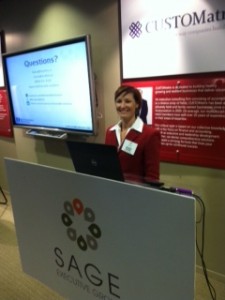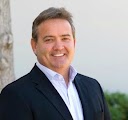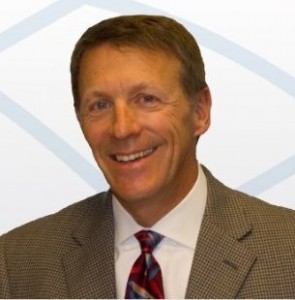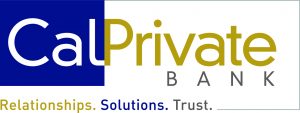Sage Group Hits Membership Milestone
SAN DIEGO – Sage Executive Group, a San Diego-based membership network and advisory group for business leaders, announced record growth in its membership. Sage has grown from startup four years ago to a premier peer advisory organization for CEOs of more than 90 San Diego and Orange County members, with total revenues from their businesses exceeding $1.5 billion and averaging a 15 percent growth from 2014 to 2015.
As part of its expanding role to become a key training and development organization for leading San Diego-area companies, Sage has expanded its reach to include special groups for sales leaders, creative agency executives, marketing professionals and facility managers.
What sets Sage apart in working with the region’s top executives is a philosophy emphasizing values, encouraging business leaders to put people before profits, and learning how to effectively balance business demands and responsibilities to family, community and health. Members, ranging from CEOs of large-scale companies to up-and-coming sales executives at new enterprises, meet monthly to share ideas, solve problems and exchange feedback about their professional and personal challenges.
“Sage offers camaraderie and support of people who are going through some of the same things you are,” said Sage member Steve Wagner, co-founder and brewmaster of Stone Brewing Co. “We share and give each other ideas for how to better balance life, and take good care of your business and your family.”
Sage’s growth has been guided by founder and CEO Jerry Rollins, a successful San Diego businessman and entrepreneur whose management approach is grounded in his early career as a professional hockey player. His sports experience of coaching and being coached, as well as his expertise in business team building, has translated into Sage’s emphasis on values-based leadership.
Sage’s identity, and resulting rapid growth, is founded on groups of 10 to 12 like-minded executives who meet monthly in half-day sessions led by a seasoned business leader. Members work together to address and solve critical issues impacting their business and personal lives. Each group offers a scholarship to a member who leads a nonprofit organization in the local area. Sage also holds quarterly networking events featuring a presentation by marketing and sales experts. Sage members contribute to educational growth by offering aspiring students college scholarships on an annual basis.
Sage Executive Group was launched in 2012 by Rollins, who served as the CEO, president and owner of four companies for more than 21 years, and San Diego entrepreneur Brian Yui, a specialist in building companies from the ground up.
For more information, contact SAGE Executive Group at (800) 648-1063 or visit www.sageexecutivegroup.com.
Media Contact: Chuck Buxton
chuck@sageexecutivegroup.com or (619) 892-8119
Sage Talks Premieres
By Cecilia Johnson
UCSD Extension Business Program graduate student and Sage Executive Group intern
Nine speakers representing some of the best business minds in San Diego gave powerful insights into strategy, vision, purpose and life values at the debut of “Sage Talks” sponsored by Sage Executive Group and attended by members of the peer advisory group at the Grand Del Mar hotel in San Diego on Dec. 8.
Sage CEO Jerry Rollins moderated the event with a goal of bringing new information to Sage’s members so they can apply it to building better leadership and creativity for their companies. Sage, in its role of mentoring top executives, strives to bring a competitive advantage to its members and to be part of their journey of success.
The talks, each less than 20 minutes and modeled on the popular TED Talks format, were given over four hours during the afternoon. Before the speeches, about 100 members and guests had an opportunity to socialize at a buffet lunch and afterwards to share ideas and observations at a reception on the hotel patio, festively decorated for the holidays.
From the perspective of a business student, the talks accentuated the importance of a moral commitment to employees, as well as family and community. Speaker after speaker shared experiences and life stories that were not only about overcoming obstacles and achieving success, but about a strong consciousness of being good people overall and of providing integrity and trust in personal and business relations.
In his role as moderator, Rollins played a dual role of keeping the nine talks rigorously on schedule and also fostering a climate of belonging to a learning group.
For more information, click on Sage Executive Group. To view the nine talks, go to Sage Executive Group’s YouTube Channel.
Transform Your Strategic Thinking
If you are comfortable with your strategic planning, then you need to shift your perspective, escape the trap of “tried-and-tested tools” and focus on key areas that very likely will bring “fear and discomfort,” said business consultant Stacey McKibbin in a presentation to San Diego business executives. 
McKibbin, president of Multivariable Solutions and a coach with Sage Executive Group, challenged business leaders to understand that in today’s hyper-competitive environment, strategy “is more of an intuitive and messy process, not the analytical process we’ve made it to be.”
The breakfast meeting in early November was sponsored by Sage Executive Group, a fast-growing, San Diego-based peer advisory group for top managers ranging from CEOs and C-level executives to sales and marketing directors.
Effective strategic planning embraces the unknown, requires unwavering focus by a small group of top executives who have inherent trust in each other, and demands a commitment of time each week over a year or more. “Once strategy is nailed, execution is very systematic and sequential,” McKibbin said.
It is critical to assemble the right team, a group of four to five leaders drawn from the top ranks such as CEO, co-founders, head of sales or marketing, all with one attribute in common – trust. The team’s main job is to determine the focus for the future, concentrating not on everything the business does for every customer, but on its most profitable and value-driven core. This is the 7 percent that effectively defines the company and draws customers who are attracted and sustained by “value” of what the company provides and are willing to pay for it.
“This becomes you Number 1 thing to focus on,” McKibbin said.
For more information on McKibbin’s presentation, you can reach her at stacey@multivs.us or (844) 433-3328.
Click here to learn more about Sage Executive Group.
Sage Executive Group launches Facility Manager Group
Sage Executive Group has created a new peer advisory group for facility managers under the leadership of Ron Harrell, CEO of San Diego-based facility services company MyOffice.
Facility management professionals, each from a company with more than $10 million in annual revenues, will meet monthly with about a dozen of their peers to share ideas, explore solutions and develop strategies to better serve their companies.
Harrell said the Sage process is aimed at helping members grow professionally and personally. In his role as  coach, he helps facility managers in the group “discover what’s working and what’s not, best practices, future challenges, how they are interacting with upper executive management and in the process how to be a better manager of people who report to them.”
coach, he helps facility managers in the group “discover what’s working and what’s not, best practices, future challenges, how they are interacting with upper executive management and in the process how to be a better manager of people who report to them.”
Harrell founded MyOffice and has been CEO for the past 27 years, providing multiple facility management services in one place and working with companies that are expanding, downsizing, moving or planning to buy or liquidate office equipment.
Sage Executive Group was established in 2012 in San Diego and operates peer advisory groups for CEOs, presidents, and partners, as well as for C-level executives in finance, operations and sales. The Sage process has been developed by leaders who have over 45 years of collective experience with CEO peer advisory groups. As a result, Sage knows what it takes to create an effective and value-driven member experience. For more information, contact Sage Executive Group at (800) 648-1063 or visit www.sageexecutivegroup.com.
SAGE Business Barometer – Kevin Landry
The business leaders who belong to Sage Executive Group deal with challenges across a broad spectrum of the economy and have first-hand understanding of the opportunities and obstacles ahead. This blog from members of Sage’s peer-to-peer advisory groups offers insights and advice.
Kevin Landry is the CEO/Owner of New Horizons Computer Learning Centers of Southern California, which has offices in San Diego, Anaheim, Burbank, Culver City and San Bernardino and provides IT learning solutions to companies and individuals, helping them make the most of their software investments.
While the economic climate is brightening across the country and Landry is upbeat about revenue prospects for his company, he cautions that California’s business regulations and requirements are distracting, and even stifling. Here’s what he had to say in an interview in February:
“In California, we have our own set of challenges with the national groundswell going one way and California pulling us in another direction. We saw voters nationwide go to a certain philosophy and direction while the state of California retrenched. We find it restrictive and difficult to do business. Other states have fewer regulations, less intrusiveness, and a lower cost of doing business. Sometimes I’m envious of them.
“Obamacare did affect how we bonus our people. We used to cover 100 percent of family insurance for our managers, and now that is considered discriminatory and we can’t do that. I don’t believe government should be telling us how to reward our people.
“Every city has a different requirement for how sick leave is accrued. We are forced to be aware of each and every different municipality. It takes my focus off our primary mission , thinking of where we’re going to be in 6 to 12 months from now. I should be working on the business, not at the business.”
“Do we want to continue to grow in California, or think about moving jobs outside California, or to models where we’re not creating jobs? For example, we no longer need to have an instructor in class in California. The instructors can now deliver the class from a remote location in another state via online delivery.
“We are forced to do things and pay licensing fees such as UC Irvine or UC San Diego. Governing agencies are difficult to work with and can be onerous, bureaucratic. It’s the administrivia that state agencies and audit agencies put on us.
“We’ve done well. Last year we grew just under 30 percent. We have an optimistic forecast for 2015; we are bullish on short-term opportunities.”
SAGE ADVICE from executive peer advisory group
“Settle on a philosophy and a set of principles and diligently implement that strategy no matter how painful it is. Some people are not going to make the transition and some people are. Friendships are going to be challenged. The CEO is going to have to make decisions in the best interest of the company, not the best interest of the friendship.”
“When we put the company ahead of everything else, it’s amazing how well the company has done.”
Weekly Wisdom: Can Fear Be A Great Motivator?
Have you ever had pre-game jitters, been nervous before a big sales presentation, or been concerned about delivering bad news to an employee, boss or board of directors?
My answer to the question of Fear as a Motivator is both No and Yes
To support the No reply in respect to business leaders or sports coaches, it is true that short-term results can be gained by utilizing fear as a motivator. Having said that, the results are never pleasant, and long term it is not the right way to motivate people. Short-term results do not turn into long-term achievement. The best examples supporting this conclusion have been exhibited by very successful college coaches who rule with iron fists utilizing fear tactics. Invariably they try to move onto the pro ranks and that is where these tactics do not work with true professionals. It is exhibited in the business world by autocratic leaders who achieve short-term goals but miss long-term objectives because they cannot retain their people.
On the Yes side of the equation are my studies of highly successful leaders, coaches and athletes. A common trait they share is their self imposed and innate fear of failure. Each day they are concerned with disappointing their teams, or fears of not achieving their vision and goals. What this group has in common is that they are high achievers and are considered best in class by those that know them.
One of the defining factors of true winners, leaders, coaches and employees is the ability to face their fears and to not become paralyzed by them. An old coach of mine told me that everyone has their fears, but my ability to act on and overcome them would define my level of success.
If Fear is controlling you, it may be time to confront it and see what the worst outcome is. In my own experience, it was rarely as bad as I made it out to be.
“I have learned over the years that when one’s mind is made up, this diminishes fear; knowing what must be done does away with fear.” Rosa Parks
Weekly Wisdom by Jerry Rollins, CEO and Chairman of Sage Executive Group
Hiring Best Athlete for the Job Pays Off
Are you hiring the best athletes available?
There is a practice among successful pro sports teams that drafting the best athlete available is the way to develop winning teams. I believe this is also true in business and by doing a small study lately I came to the realization that there is a strong correlation to successful salespeople, sales leadership and C-suite executives.
I know that many of you will say, OK, this is just my way of saying that because I was a successful amateur and professional athlete that it then led to my success in business. In reality, I recognize that I always hired people who were high school and college athletes and never knew why until a study I did in November of this year.
At a meeting of 10 Sales VPs, we had by show of hands how many were successful athletes in high school. We were 10 for 10. Five of our members were not at the meeting, but I know them all and we were now 15 for 15. Next I asked the 10 attendees to think of the two best people they had ever hired in their careers. Again we were 20 for 20 on the competitive athlete front.
To carry my research further, I met with 10 CEOs the next day and asked the same question. Nine of 10 were competitive athletes. One CEO did not play sports in high school because his parents were educators, but after he got on his own, he became expert at the martial arts and still runs several miles every day. Then we went to the best two people they had ever hired, and we were 18 of 20. The two exceptions were performing musicians who were used to playing in front of crowds.
After seeing these amazing numbers, we then asked why this was a factor and what attributes did athletes have in common.
They were used to scoreboards and being judged every time they played.
- They had to try out and make the team every year. If they let down, they were replaced.
- They had to be on time for practice.
- They were used to hard work and balancing education and sports. 100% of them had jobs that they worked either after school or in the summer.
- They were coachable.
- They were competitive, but team oriented.
- They were always working on improvement.
I am sure my small sample size will allow some to question if this is merely a coincidence or if there is some merit to looking into people’s background to determine if these are factors that should be taken into account when hiring.
So my takeaway is, hire the best athlete available but don’t forget performing musicians.
Weekly Wisdom by Jerry Rollins, CEO and Chairman of Sage Executive Group
Practice the 6P's of Great Teams
My observations of great teams in both my business and professional sports careers have led me to believe that there are parallel practices common to both. Here are the 6P’s of great teams.
- Preparation: They prepare in advance and always expect to win.
- Plans: They own and understand them. One-page plans are the best.
- Practice – They constantly practice their craft and are involved in perpetual learning and self improvement.
- Persistence – They don’t quit in the face of adversity or obstacles; they take great joy in dealing with challenge.
- imPatient – They want it done yesterday and feel today is the best time to make things happen.
- Party – They have lots of celebrations and recognition for achieving milestones; then they set more aggressive goals and move on to the next one.
Weekly Wisdom by Jerry Rollins, CEO/Chairman of Sage Executive Group
McKibbin, Hunter Appointed as Sage Executive Group Co-coachs
Stacey McKibbin and Chuck Hunter, both experienced business management consultants, were recently named co-coachs to work with CEOs from mid-sized firms who are members of Sage Executive Group, a fast-growing peer advisory organization.
In their mentoring and training roles heading up the Ascent division of Sage Executive Group, they lead monthly meetings with a dozen business executives who share ideas, explore solutions and develop strategies to expand their companies.
McKibbin’s executive experience includes heading Multivariable Solutions, a Carlsbad business consulting company. She also was an adviser for McKibbin Enterprises in San Diego helping companies build profits and more effective management structures.
Hunter’s leadership positions include serving as CEO at Multivariable Solutions, which he founded in 2009, and holding senior/C-level positions at multiple companies, including Lockheed Martin, where he navigated mergers and acquisitions, and at CamelBak, where he helped develop the startup outdoor equipment maker into a global company.
As Sage coachs, McKibbin and Hunter lend their guidance and knowledge to interactive discussions in which chief executive officers and other business leaders in companies with revenues up to $4 million annually foster a better understanding of their challenges, both professional and personal. A separate division offers groups for CEOs leading companies with higher revenue levels.
Sage Executive Group was established in 2012 in San Diego and operates peer advisory groups for CEOs, presidents, and partners, as well as for C-level executives in finance, operations and sales. The Sage process has been developed by leaders who have over 45 years of collective experience with CEO peer advisory groups. As a result, Sage knows what it takes to create an effective and value-driven member experience. For more information, contact Sage Executive Group at (800) 648-1063 or visit www.sageexecutivegroup.com.
Stacey McKibbin and Chuck Hunter, both experienced business management consultants, were recently named co-coachs to work with CEOs from mid-sized firms who are members of Sage Executive Group, a fast-growing peer advisory organization.
In their mentoring and training roles heading up the Ascent division of Sage Executive Group, they lead monthly meetings with a dozen business executives who share ideas, explore solutions and develop strategies to expand their companies.
McKibbin’s executive experience includes heading Multivariable Solutions, a Carlsbad business consulting company. She also was an adviser for McKibbin Enterprises in San Diego helping companies build profits and more effective management structures. Hunter’s leadership positions include serving as CEO at Multivariable Solutions, which he founded in 2009, and holding senior/C-level positions at multiple companies, including Lockheed Martin, where he navigated mergers and acquisitions, and at CamelBak, where he helped develop the startup outdoor equipment maker into a global company.
As Sage coachs, McKibbin and Hunter lend their guidance and knowledge to interactive discussions in which chief executive officers and other business leaders in companies with revenues up to $4 million annually foster a better understanding of their challenges, both professional and personal. A separate division offers groups for CEOs leading companies with higher revenue levels.
Sage Executive Group was established in 2012 in San Diego and operates peer advisory groups for CEOs, presidents, and partners, as well as for C-level executives in finance, operations and sales. The Sage process has been developed by leaders who have over 45 years of collective experience with CEO peer advisory groups. As a result, Sage knows what it takes to create an effective and value-driven member experience. For more information, contact Sage Executive Group at (800) 648-1063 or visit www.sageexecutivegroup.com.
Sage Executive Group Announces Four New Advisory Groups
Sage Executive Group, which started two years ago as a peer advisory organization for CEOS, has launched four new groups for business executives in finance, operations, sales and marketing and business development and for CEOs in small to mid-size companies.
Founded in San Diego by business leaders with over 45 years of collective experience with peer advisory counseling for chief executive officers, Sage Executive Group offers like-minded leaders an opportunity to learn together in a collaborative process of problem-solving.
Sage Executive Group has created new opportunities for chief operating officers, finance officers and sales and marketing executives of fast-growing private companies in the region. It also has added Sage Ascent, a group for CEOs of small and mid-sized companies.
“Our groups meet monthly for interactive, dynamic, half-day sessions where we address and solve critical issues impacting our members business and personal lives, ultimately improving leadership effectiveness and bottom line performance,” said Tom Deverell, a Sage group coach.
The four new groups are:
CFO/COO: Members are C-level executives who interact with peers to expand their leadership expertise. Titles include COO, CFO, General Manager or Chief Legal Counsel. They meet each month for 2 1/2 hours to explore challenges ranging from creating and following a business plan to developing financial metrics.
Sales and Marketing: Members oversee sales and/or marketing for firms with revenues exceeding $4 million annually and are seeking ways to deal with sales and marketing challenges, expand their network and improve leadership skills. They meet each month for 2 1/2 hours to share ways to achieve goals and overcome obstacles, both personal and professional.
Ascent CEO: Members, like chief executives in the pioneering Sage CEO groups, meet monthly for five hours to learn from each other and tackle their most pressing issues. Their companies have sales from $1 million through $3 million.
Business Development: Members of this newest Sage group, Advisory Council to Executives, are experts in their field who are expanding their connections in the community and finding new ways to share their expertise as “go to” business contacts.
About Sage Executive Consulting
Sage Executive Group is broadening its CEO training and mentoring program to include other high-level executives while retaining key goals of providing a confidential forum for business leaders to share ideas, solve problems and exchange peer feedback. As a result, Sage knows what it takes to put together an effective and value-driven member experience that has made it a leader in the field.
For more information, contact Sage Executive Group at (800) 648-1063 or visit www.sageexecutivegroup.com.


